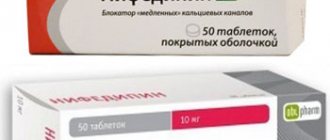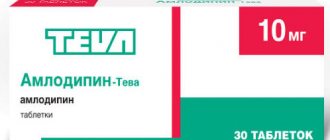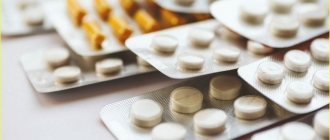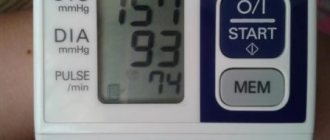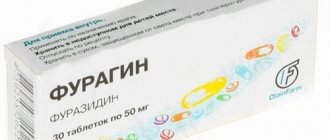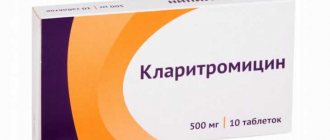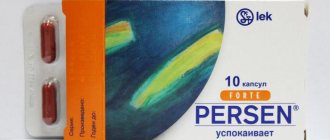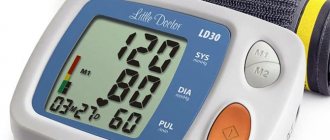Headache is, unfortunately, a widespread problem. There are many drugs to relieve this unpleasant symptom, and one of the most famous of them is Citramon, which is well known to both the younger generation and grandparents. This pain reliever copes well with its immediate responsibilities. But is its use always justified? After all, headaches can be caused by a variety of reasons, and a considerable part of them are directly related to blood pressure. Or rather, with its deviations from the norm. In this regard, few people know the effect of Citramon, whether it increases or decreases blood pressure. Let's try to clarify this issue.
Citramon increases blood pressure levels
Composition and properties
To understand whether Citramon increases or decreases blood pressure, you need to familiarize yourself with its composition. The drug is available in tablets. Each contains the following elements:
- Aspirin. This is acetylsalicylic acid. It does an excellent job of thinning the blood, which helps prevent blood clots. It does not have much effect on the vessels themselves.
- Paracetamol. This component relieves pain well and reduces body temperature.
- Caffeine. This element has an effect on blood vessels, and, consequently, on blood pressure. Caffeine increases blood pressure.
Citramon tablets have several manufacturers, so the name may vary as well as the number of active ingredients
The general properties of the drug are as follows:
- Normalization of low blood pressure.
- Preventing the formation of blood clots.
- Blood thinning.
- Relieving pain syndrome.
- Elimination of drowsiness, fatigue.
- Decrease in body temperature.
- Suppression of the inflammatory process.
- Normalization of blood circulation.
The medicine provides such a broad effect due to the fact that it contains three active components at once. Most often, tablets are used for headaches or fever. They have proven themselves to be good in the fight against these symptoms.
Composition of the drug, its pharmacological action
Since Citramon is a fairly effective over-the-counter analgesic, it is indeed very popular - usually the pain goes away after 20 - 30 minutes. But sometimes it does not bring relief, and the patient’s condition only worsens. To understand why this happens, let's consider the composition and principle of action of each of the components of citramon. All the main active ingredients of the drug are time-tested remedies that relieve headaches:
- aspirin,
- paracetamol,
- caffeine.
Many manufacturers change the proportions of these components by adding other targeted excipients (for example, citric acid, which helps compensate for vitamin C deficiency). Aspirin is known as an anti-inflammatory drug that can relieve painful manifestations in areas of inflammation, thin the blood, improving its rheological properties, act on pain receptors and have an antipyretic effect, affecting thermoregulation centers.
Paracetamol is a pain reliever that does not contain narcotic substances. The second important property of the drug is its ability to lower high temperatures. Caffeine is an analgesic that enhances the effect of aspirin and paracetamol. In addition to a pronounced analgesic effect, it has the ability to dilate blood vessels in the kidneys, brain, muscle structures, influence heart rate and constrict peripheral blood vessels/capillaries. Caffeine also has the ability to increase body tone, stimulating physical activity.
Effect on pressure
Citramon should not be taken if you have high blood pressure. Due to the caffeine content in it, the blood pressure rises. If a hypertensive patient takes this remedy, the tonometer readings will quickly jump up. This can cause negative consequences for the patient, for example, a hypertensive crisis, which in turn can cause a heart attack, stroke and other pathologies.
If your blood pressure is low, you can take the medication. Moreover, when the indicator decreases, many patients prefer these tablets to raise blood pressure. But it is not recommended to use them constantly, because they are quite harmful to the body and have many side effects.
Citramon not only increases blood pressure, but also eliminates associated symptoms, such as headaches
Citramon and alcohol
Many people wonder how Citramon and alcohol are compatible with each other. The instructions for use do not indicate what effect the combined use of these substances has. It would seem that the analgesic effect that these tablets have can also relieve a hangover headache. However, many years of research prove that the content of active ingredients in 1-2 tablets is not enough to relieve a hangover. And an overdose is fraught with complications for internal organs.
If you take citramon for a hangover, you may experience:
- Severe gastrointestinal upset . Taking even 1 tablet can cause vomiting, diarrhea, and severe nausea. If a person already has gastrointestinal diseases (gastritis, duodenal or stomach ulcers), the components of the drug may cause bleeding. Citramon slows down blood clotting, so such an exacerbation of the digestive system is quite predictable.
- Toxic liver damage . A one-time dose of Citramon after an alcoholic libation may not cause harm to the liver. However, if this habit becomes part of the system, negative consequences cannot be avoided.
- Allergy . Under the influence of salicylates of the drug in combination with alcohol, urticaria, itching, and in severe cases, Quincke's edema or anaphylactic shock, which sometimes lead to death, may appear.
- Critical decrease in blood sugar . Taking Citramon tablets after alcohol increases the risk of exacerbation of all endocrine diseases, including diabetes.
- A sharp rise in pressure . Alcohol itself increases blood pressure, especially if taken beyond the safe limit. Caffeine and paracetamol can increase readings by several tens of units, up to the occurrence of a hypertensive crisis. Therefore, you should absolutely not use this drug if you have high blood pressure.
Treating a hangover with Citramon can lead to stomach upset
Considering all the negative consequences that can be caused by consuming Citramon with alcohol, you need to think more than once whether it is worth doing. There are other, more effective and safe, drugs to relieve hangover headaches.
Instructions for use
Citramon should be taken orally with water. You can take it after or during meals. The standard treatment regimen looks like this: one tablet 3-4 times a day. It is not recommended to take more than 8 times a day. The duration of therapy is no more than 10 days.
If the patient has problems with the functioning of the kidneys or liver, then between doses of tablets there must be a break of at least 6 hours.
If the medication is used as an analgesic, it can be used for no more than 5 days. When eliminating elevated body temperature, take no more than 3 days.
Features of use
This product contains caffeine
The therapeutic effect of citramon is to relieve headaches by dilating blood vessels while increasing blood flow. For healthy people, this does not pose any danger; after taking the medicine, the pressure gradually stabilizes.
But for hypertensive patients, certain difficulties may arise due to increased blood pressure and their health in most cases worsens.
The note. After taking a citramone tablet, heart contractions are stimulated, cerebral vessels dilate, pressure increases and blood flow increases.
When considering the effects of caffeine, individual characteristics cannot be ignored. Some people have an addictive effect and even small dosages can sharply increase blood pressure, and for some, significant doses are needed in order for a change in physiological processes to occur. Naturally, it is undesirable for people with a rapid reaction to this alkaloid to use it.
If you drink citramon with cola, its effect on blood vessels will increase
The frequency of taking citramone is no less important, since it contains acetylsalicylic acid, which thins the blood and interferes with its clotting. Therefore, if a blood vessel is damaged, the bleeding will be more profuse and longer, and if a stroke occurs, its consequences will be much more severe.
It is not for nothing that the doctor advises elderly patients with heart disease to replace citramon with another drug, for example, analgin.
Important. Sick people should constantly monitor their blood pressure, not by how they feel, but by measuring it, since there are now plenty of electronic devices for independent use.
You can take Citramon in a course of 2-3 tablets per day or once, which is quite enough to relieve pain. For hypotensive patients there will definitely be a positive effect, and for hypertensive patients, as already described above, there are certain restrictions that must be taken into account, but it is better to avoid using citramon.
Taking the medicine does not depend on food, but if you drink it with caffeine-containing drinks, the effect of citramon will increase. If a person constantly consumes cola or strong coffee, then in this case the effect may be neutralized due to adaptation to the influence of caffeine.
Contraindications to the use of the drug
You cannot take Citramon with low blood pressure in the following cases:
- Individual intolerance to the components of the drug.
- Acute form of stomach ulcer.
- Bleeding in the gastrointestinal tract.
- "Aspirin" asthma.
- Hemophilia.
- Hemorrhagic diathesis.
- Hypoprothrombinemia.
- Portal hypotension.
- Lack of vitamin K in the body.
- Kidney failure.
- First and third trimester of pregnancy.
- Breast-feeding.
- Lack of glucose-6-phosphate dehydrogenase.
- High blood pressure.
- Severe form of coronary heart disease.
- Glaucoma.
- Excessive excitability.
- Sleep disorders.
- Surgery that involves large blood loss.
- Children under 15 years of age.
The drug should be taken with extreme caution by people who suffer from gout and liver pathologies.
Before taking tablets, be sure to measure your blood pressure; if the readings are elevated, Citramon is contraindicated
Is it possible to take pills during pregnancy and lactation?
Answer: absolutely not. It's all about acetylsalicylic acid. During the first and second trimesters of pregnancy, the child’s organs and limbs are actively forming, and aspirin negatively affects the growth of the embryo, impairing blood circulation.
Taking medication at the end of the perinatal period is dangerous for the birth process. It can cause large blood losses.
Citramon is also prohibited for nursing mothers (as stated in the instructions), since aspirin is a strong allergen and can cause a reaction in the child. And although its amount in a tablet is small (0.2 g), this is quite enough to harm a small organism.
If the headache does not go away, use safe Citramon substitutes. This way you won't harm the baby. This could be Paracetamol and Efferalgan, Ibufen and Panadol. And here
Pentalgin
and Aspirin should not be taken under any circumstances.
Pregnant women should avoid this drug in the first and third trimesters. The danger for them lies in the action of acetylsalicylic acid, not caffeine. Aspirin affects blood clotting (thin it) and negatively affects the development of the fetus, causing congenital anomalies.
We suggest you read: Late toxicosis or gestosis during pregnancy
Nursing mothers should also look for a replacement drug.
Whether Citramon increases blood pressure in your particular case depends on your state of health and the individual characteristics of your body. Any risks can be minimized if you approach treatment consciously, namely, seek advice from a doctor or pharmacist, carefully read the instructions and follow them conscientiously.
The medicine should not be used by pregnant women in the 1st trimester and 3rd trimester of pregnancy. This can lead to congenital pathologies of the fetus and lead to abnormalities in its development. In addition, acetylsalicylic acid increases the risk of bleeding during childbirth.
Even if a pregnant woman decides to take citramon in the 2nd trimester of pregnancy, she will definitely need to consult a doctor
It is not recommended for a nursing mother to take the medicine during this period. Reasons to refuse the drug:
- At this time, citramon can negatively affect the gastrointestinal tract, causing gastritis or ulcers.
- Caffeine stimulates the nervous system, and together with milk this substance will enter the newborn’s body. Negative symptoms of caffeine intake: insomnia, irritability, vomiting and nausea.
- In addition, paracetamol, contained in many forms of citramone, has a negative effect on the liver. The child’s body is unable to cope with it and the drug will have a toxic effect on the child’s liver.
- Acetylsalicylic acid badly impairs blood clotting, and when feeding, it is easy to harm not only yourself, but also your baby.
Side effects
“Citramon” at low blood pressure can cause the following adverse reactions in the body:
- Pain in the stomach area.
- Nausea, vomiting.
- Hepatotoxicity.
- Ulcerative lesions of the digestive organs.
- Nephrotoxicity.
- Allergic reaction.
- Bronchial spasm.
- Increased heart rate.
- Increased blood pressure.
- Attacks of dizziness.
- Headache.
- Visual impairment.
- Noise in ears.
- Hypocoagulation.
- Bleeding from the nose, gums.
- Kidney pathologists.
- Impaired hearing function.
- Reye's syndrome in children.
Impaired visual function may be a manifestation of an adverse reaction to taking Citramon
Side effects are quite serious and most often occur with long-term use of the medication. For this reason, doctors urge not to use the product too often.
Overdose
The main symptoms of a mild overdose of this pharmacological agent may be: pale skin, dizziness, ringing in the ears, gastralgia, vomiting, nausea. In more severe cases, metabolic acidosis, anorexia, metabolic disorders involving glucose, bronchospasm, collapse, lethargy, drowsiness, difficulty breathing, convulsions, anuria, and bleeding develop. So the dosage of Citramon Ultra must be strictly observed.
Symptoms of liver dysfunction after overdose may occur after a maximum of 48 hours. In severe situations, liver failure may develop with progressive encephalopathy, followed by coma and death. Other possible disorders: arrhythmia, acute kidney failure with tubular necrosis, pancreatitis. Therapy: constant monitoring of acid-base and electrolyte balance is necessary. After the necessary diagnosis of the condition, the patient may be prescribed sodium citrate, sodium bicarbonate or sodium lactate. Against the background of increasing reserve alkalinity against the background of urine alkalinization, the excretion of acetylsalicylic acid increases.
special instructions
If you need to take Citramon for a long time, you need to regularly take blood tests and check your liver function.
If the patient is undergoing surgery and is taking this medication, be sure to inform the doctor about this. After all, acetylsalicylic acid helps inhibit blood clotting, as a result of which severe bleeding may develop during surgery.
People who are hypersensitive to salicylates or their derivatives need to take special precautions when treating Citramon.
Acetylsalicylic acid can delay the excretion of uric acid from the body. As a result, patients may experience a worsening attack of gout if they are prone to it.
It is prohibited to drink alcohol during therapy with Citramon. Otherwise, internal bleeding in the stomach may occur.
Drug interactions
- heparin, indirect anticoagulants, reserpine, steroid hormones and hypoglycemic drugs: their effect is enhanced;
- non-steroidal anti-inflammatory drugs, methotrexate: the risk of side effects increases; with prolonged combined use, there is an increase in the likelihood of renal papillary necrosis and analgesic nephropathy, and the onset of end-stage renal failure;
- salicylates (with high doses of paracetamol): the risk of bladder/kidney cancer increases;
- spironolactone, furosemide, drugs with antihypertensive effects, uricosuric drugs that promote the excretion of uric acid: their effectiveness decreases;
- inducers of microsomal liver enzymes (phenylbutazone, phenytoin, rifampicin, barbiturates, tricyclic antidepressants), hepatotoxic drugs, ethanol: there is an increase in the production of hydroxylated active metabolites, which makes the possibility of severe intoxication even in the case of a slight overdose;
- barbiturates (long-term therapy): the effectiveness of paracetamol is reduced;
- inducers of microsomal liver enzymes (including cimetidine): the risk of hepatotoxic effects of paracetamol is reduced;
- metoclopramide: absorption of paracetamol is accelerated;
- chloramphenicol: its T1/2 increases significantly (associated with paracetamol);
- anticoagulants (coumarin derivatives; with combined repeated use of paracetamol): their effect is enhanced, which is associated with a decrease in the biosynthesis of procoagulant factors in the liver;
- ethanol: the risk of developing acute pancreatitis increases (associated with paracetamol);
- diflunisal: the concentration of paracetamol in plasma increases significantly, and the likelihood of developing hepatotoxicity increases;
- myelotoxic drugs: the hematotoxicity of Citramon Ultra increases;
- ergotamine: its absorption is accelerated (associated with caffeine).
What analogues can be replaced?
Citramon has quite a large number of analogues.
Preparations containing the same substances (caffeine, paracetamol, aspirin):
- Askofen.
- Copacil.
- Farmadol.
- Citropak.
- Citrapar.
- Excedrin.
They have different dosages of active substances and differ in cost, but their indications for use are the same.
For people with high blood pressure, similar medications without caffeine are recommended:
- MOMENT.
- Aspirin.
- Aspicode.
- Alka-approx.
- Nurofen.
If for some reason it is impossible to use Citramon with low blood pressure, then drugs are prescribed that have a similar effect on the body. Often the medication is replaced with “Askofen”, “Euro Citramon”, “Copacil”, “Farmadol”. Taking into account the severity and type of the underlying disorder, the doctor selects an individual dosage for each patient.
Pharmacological companies offer drugs analogues of Citramon.
They can belong to different price categories and have either almost identical or slightly different composition:
- "Copacil";
- "Askofen";
- "Migralgin";
- "Farmadol";
- "Citropak";
- Excedrin.
What other adverse reactions can the medication cause?
Citramon causes the following unpleasant health conditions:
- Interstitial nephritis (a disease characterized by acute or chronic damage to interstitial tissue, as well as kidney tubules).
- Nephrotic syndrome (a nonspecific complex of clinical and laboratory symptoms that arise from inflammation of the kidneys and are manifested by edema, the appearance of protein in the urine and its low content in the blood plasma).
- Anemia (a pathology characterized by a decrease in hemoglobin and, in most situations, red blood cells in the blood).
- Thrombocytopenia (a disease characterized by a decrease in platelets, which is accompanied by bleeding and problems stopping bleeding).
- Leukopenia (decrease in the number of white blood cells in the blood).
- Aseptic meningitis (inflammation of the meninges, which is usually mild, but in some cases can be life-threatening).
- Tachycardia (sharp increase in heart rate, a sign of serious disorders).
- Medication headache (a type of secondary cephalgia that occurs due to uncontrolled medication use).
Negative reactions
Side effects from using the drug "Citramon" look like this:
- Weak nonsense.
- Dehydration.
- Fever.
- Cardiac arrhythmias (problems of cardiac conduction, as well as the frequency and regularity of its contractions, which lead to disruption of the normal functioning of the heart).
- Clinical-tonic convulsions (a condition characterized by strong muscle contractions that appear abruptly and alternate with short-term moments accompanied by pain).
- Anorexia (an eating disorder characterized by severely reduced body weight).
- Liver failure.
What Citramon contains
Citramon tablets contain aspirin. It is a pain reliever that is used to treat mild to moderate pain. Acetylsalicylic acid is also used prophylactically to prevent arterial and venous thrombosis.
The drug is used to relieve various diseases:
- Rheumatoid arthritis (an inflammatory disease characterized by symmetrical damage to the joints and inflammation of the internal organs).
- Chronic lupus (a disease that occurs as a result of a violation of autoimmune processes in the body involving all organs).
- Osteoarthritis (is the most common type of arthritis, and is a chronic disease that affects the joint, articular cartilage, joint capsule, bones, muscles and ligaments).
- Myocardial infarction.
Aspirin is also used to reduce the risk of death. Citramon tablets contain paracetamol, which is usually used as an analgesic and antipyretic substance. Its pharmacological effect is similar to salicylates, but it does not have an antiplatelet effect and does not lead to the development of gastric ulcers. It is a necessary ingredient in most medicines.
How does Citramon affect blood pressure? Having determined the composition of the drug, it can be argued that when the components interact, the drug increases intracranial pressure. But the medication does not dilate capillaries. So does Citramon increase blood pressure or not?
Does Citramon increase blood pressure or not?
This is a complex medicine that is recommended for use to eliminate migraines, as well as headaches, toothaches and joint pain. The combination of caffeine with paracetamol and acetylsalicylic acid enhances and accelerates the effect of the analgesic substances of the drug.
Caffeine stimulates the brain and respiratory centers. In addition, it helps to narrow blood vessels and increase breathing rate. The component also relaxes smooth muscles and stimulates the heart muscle. In addition, caffeine is useful in relieving some types of headaches and can be used to increase blood pressure. In most cases, in combination with painkillers or ergot alkaloids, it is used to eliminate migraines and other types of headaches.
What do Citramon tablets help with? The drug is prescribed for the following conditions:
- headache, toothache;
- algodismenorrhea (painful menstruation);
- migraine;
- myalgia;
- arthralgia.
Drug analogues
To relieve pain and inflammation, you can use another drug that is similar in composition to Citramon. Here is a list of similar medications:
- Citropak;
- Askofen P;
- Tomapirin;
- Copacil;
- Farmadol;
- Askofen;
- Migralgin.
Each analogue has its own instructions for use and exact dosages. Be sure to read this information before taking another medicine.
Reviews
Many patients, despite the fact that the drug is an unsafe medicine, leave positive feedback, calling it a savior.
In the article, we examined in detail whether Citramon increases blood pressure or not. And the answer has been found. The drug increases low blood pressure. But there are also reviews that mention the negative aspects of the drug. For example, with prolonged use, Citramon causes addiction.
The medicine must be used taking into account contraindications, indications and side effects. One or two pills to relieve pain cannot harm a person, but systematic use can lead to serious health problems.
Why you shouldn’t use Citramon often
Abuse of any drug is unsafe. But first of all, it is important to find out the reason for the drop in blood pressure. Hypotension is a sign of the following diseases:
- vegetative dystonia (a disease manifested by cardiovascular, respiratory disorders, poor tolerance to stress and physical activity);
- poor heart muscle function;
- post-infarction (a set of symptoms and complications in patients after myocardial infarction):
- overload of the body.
Caffeine acts as a stimulant for the central nervous system, and its frequent consumption provokes moderate physical dependence. There have been cases of patients hospitalized with chest pain and rapid heartbeat when consuming caffeine, which is considered safe.


